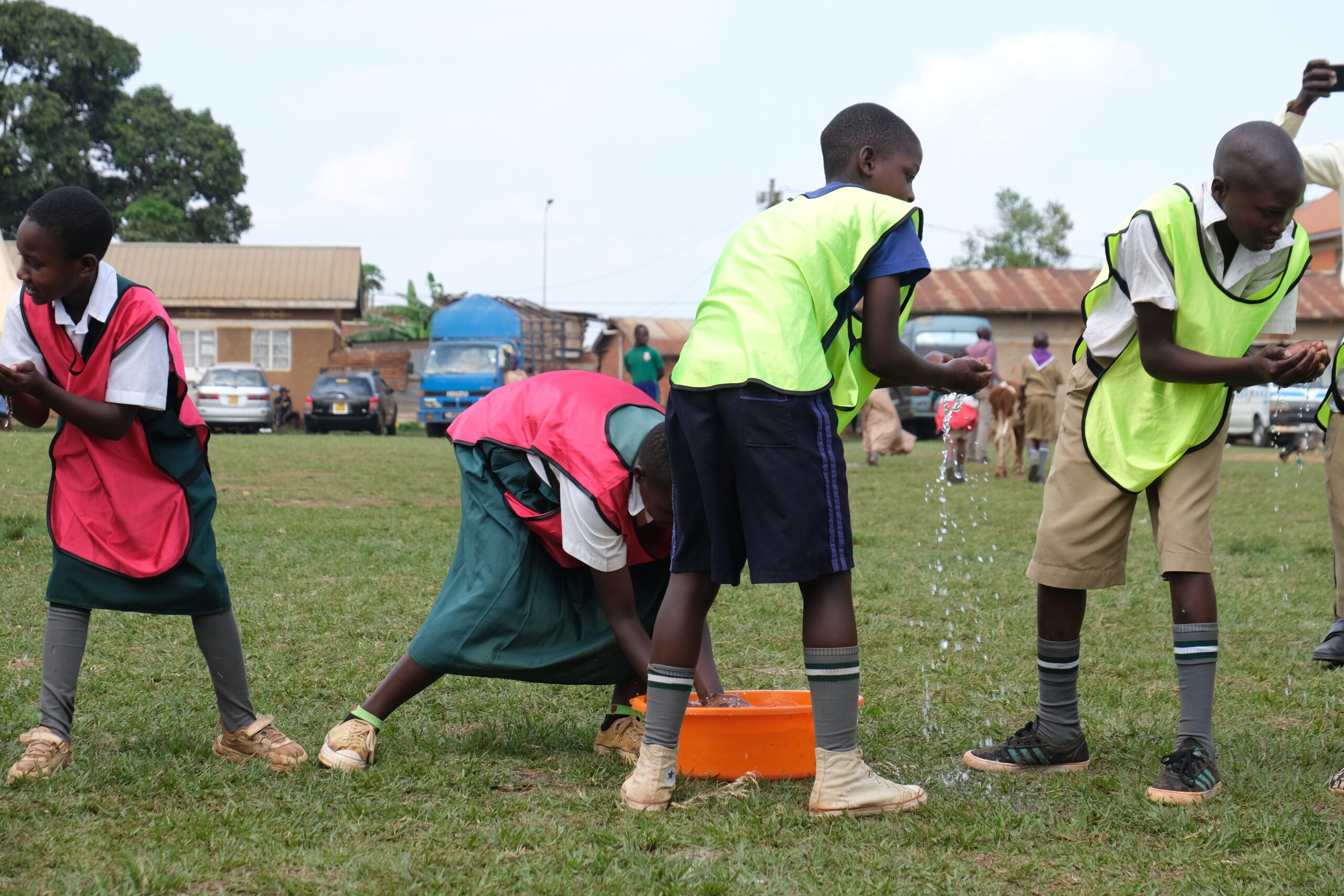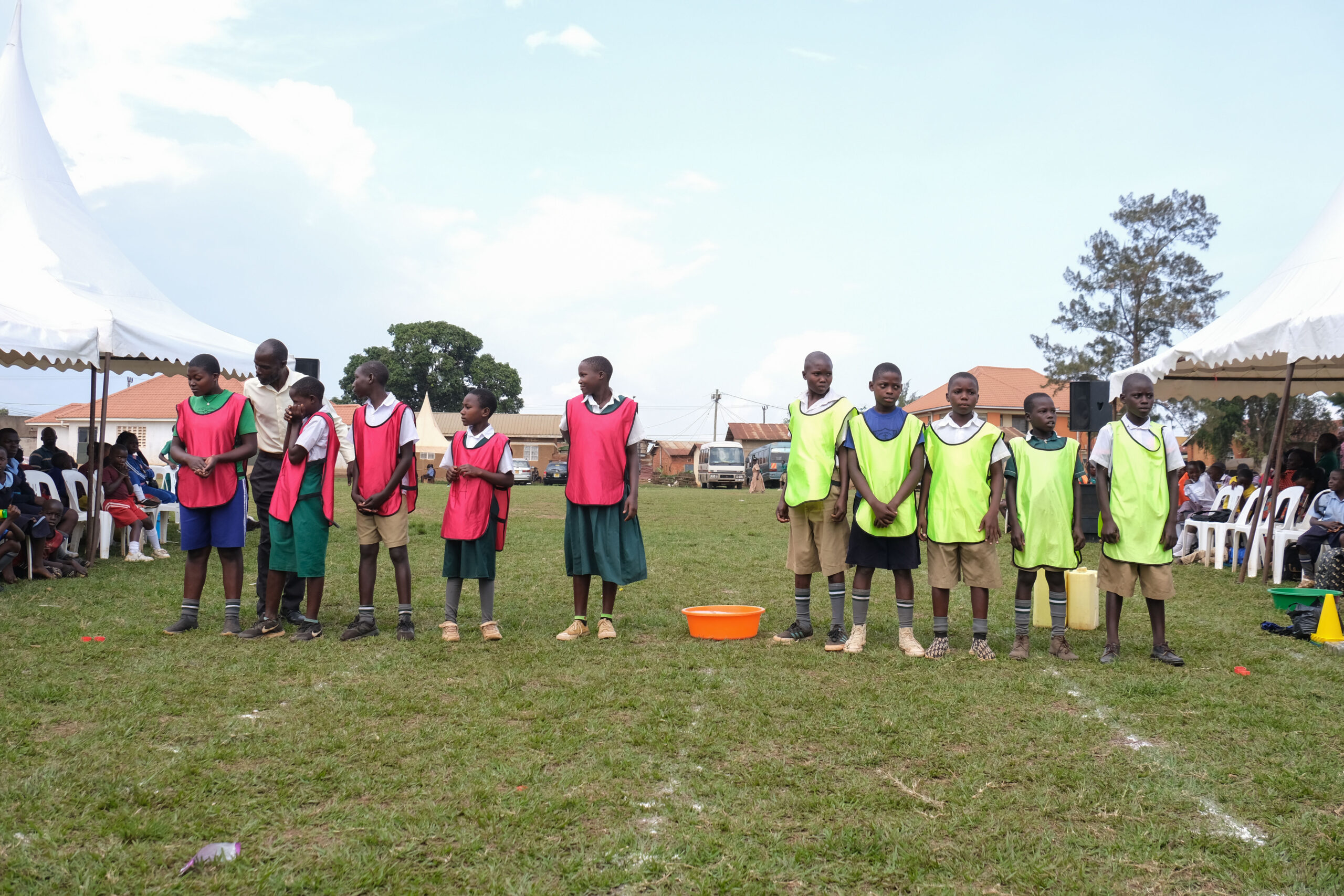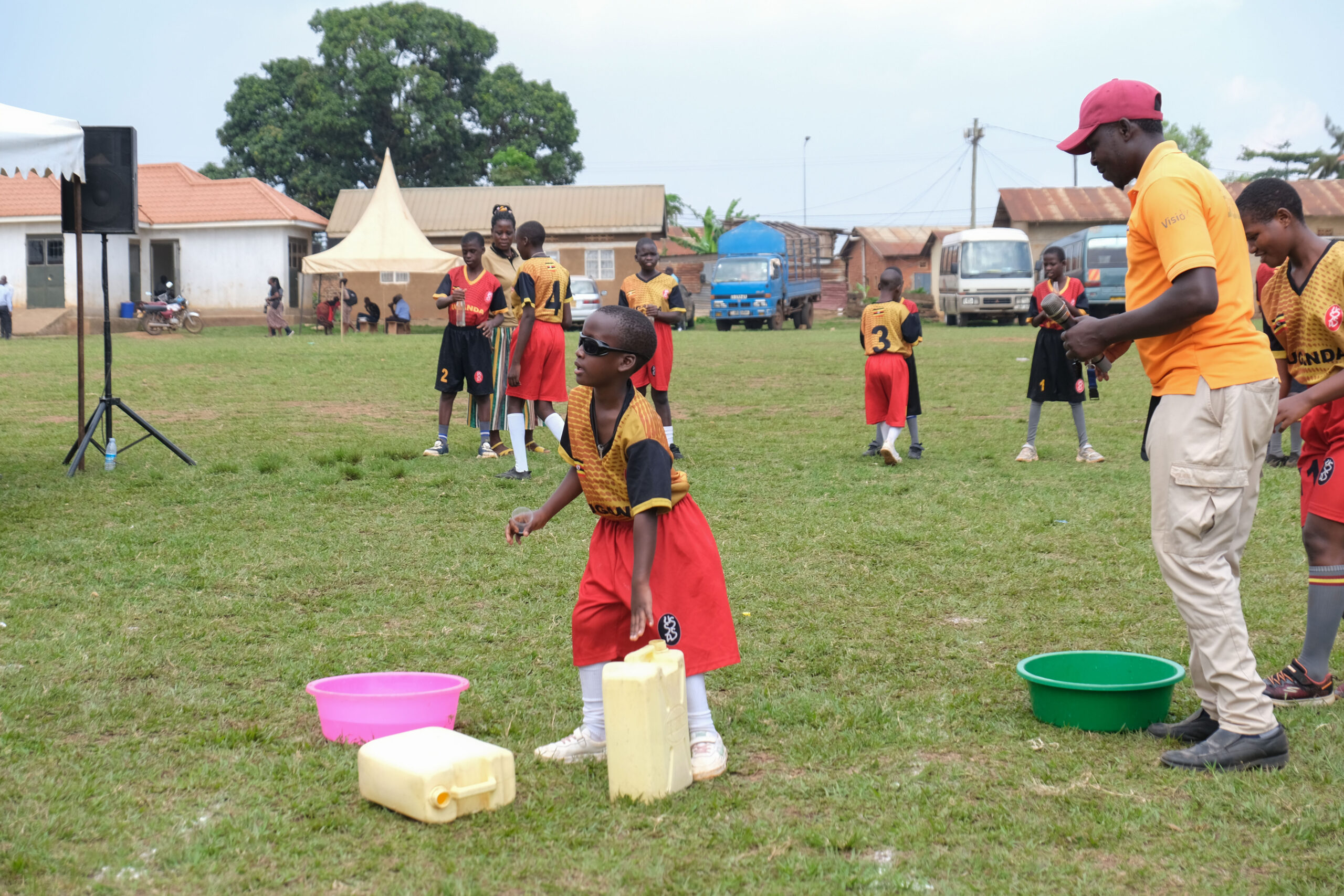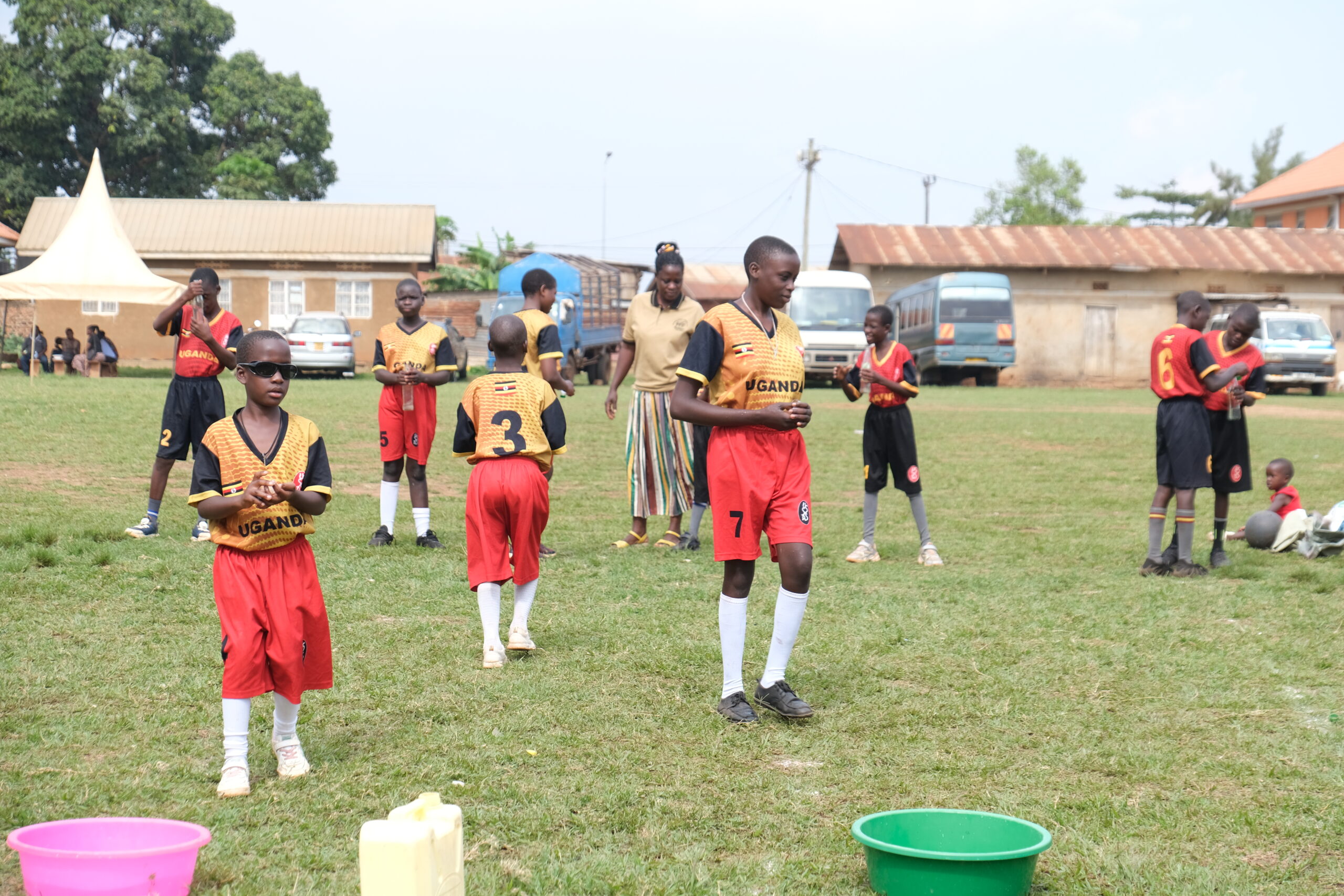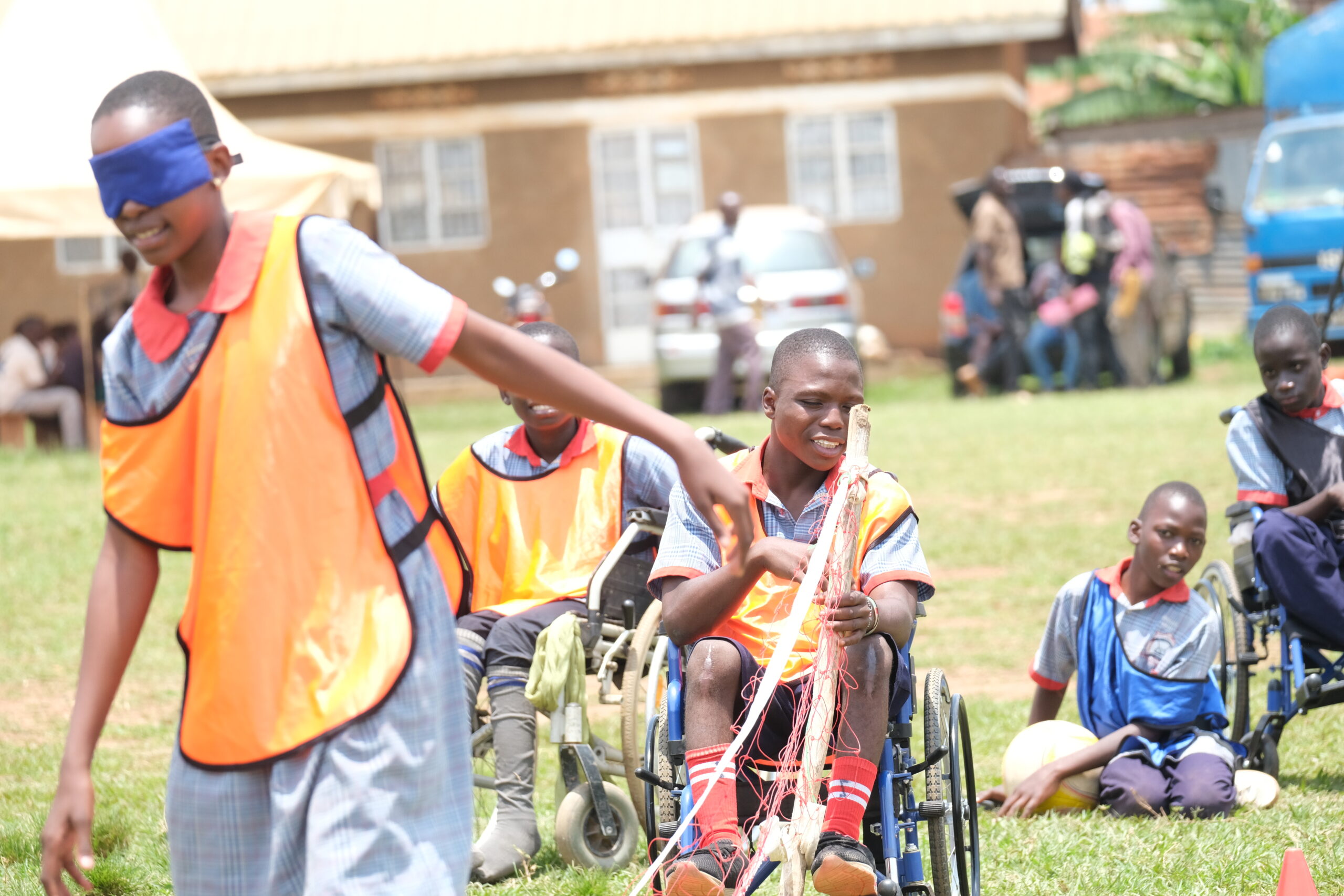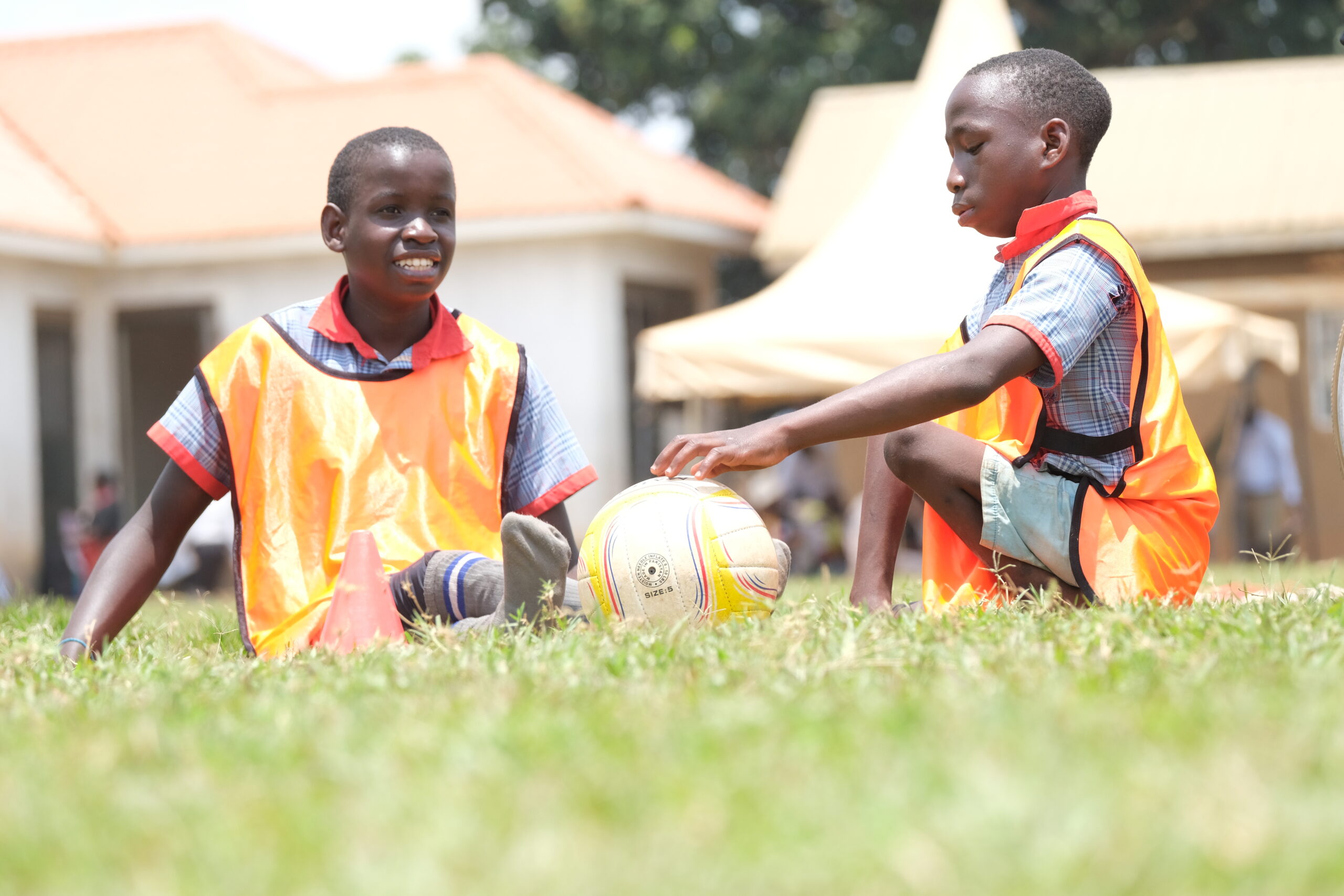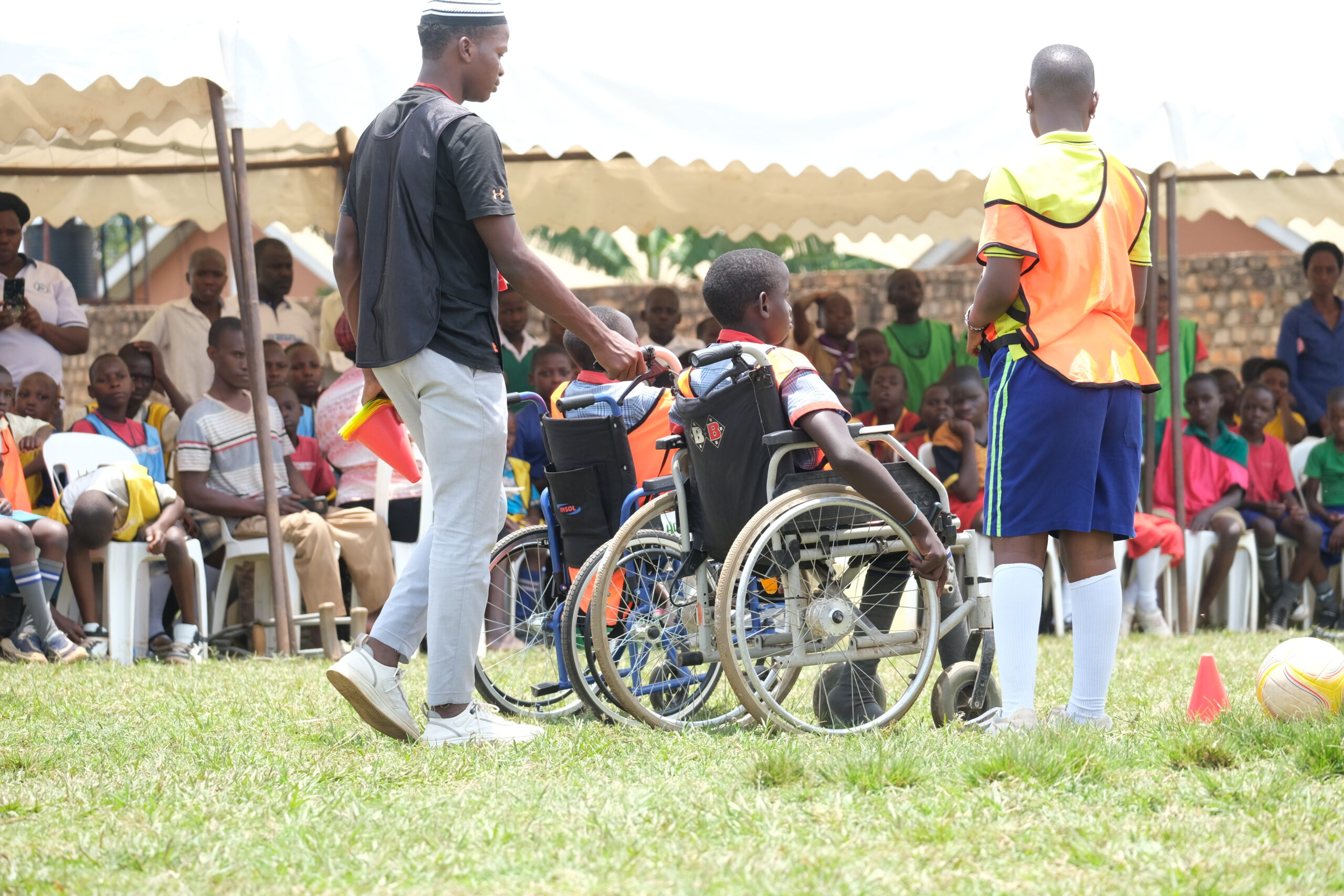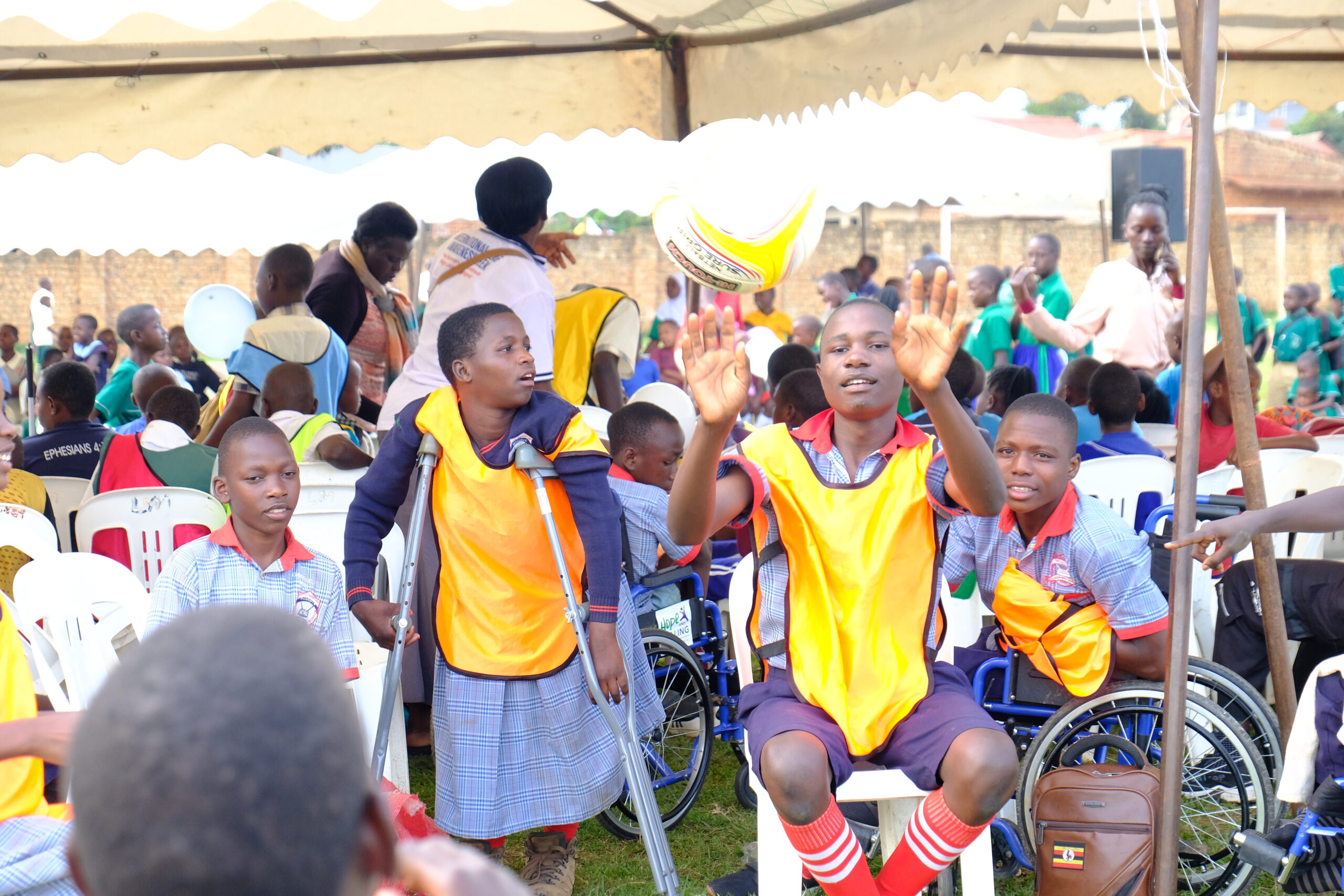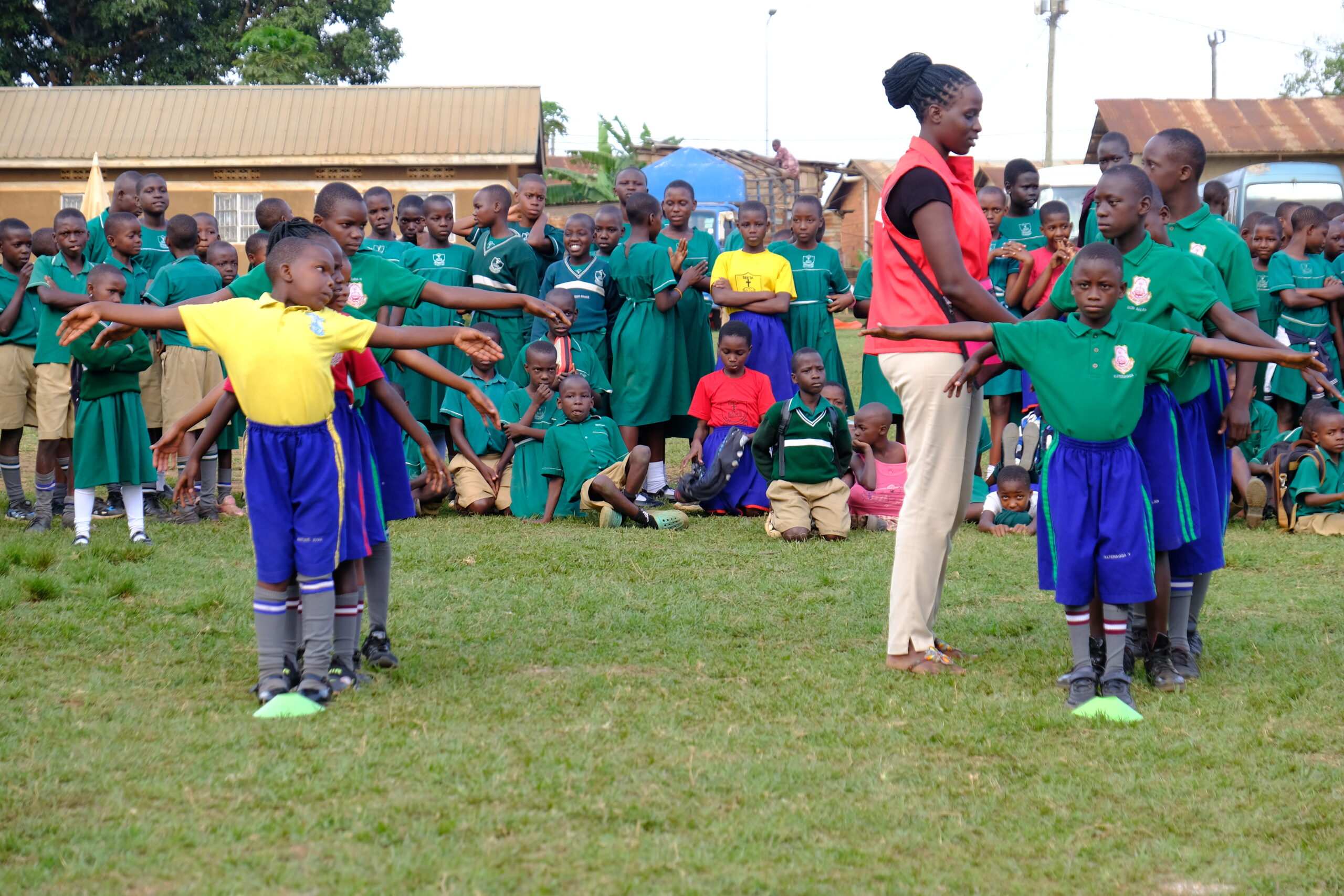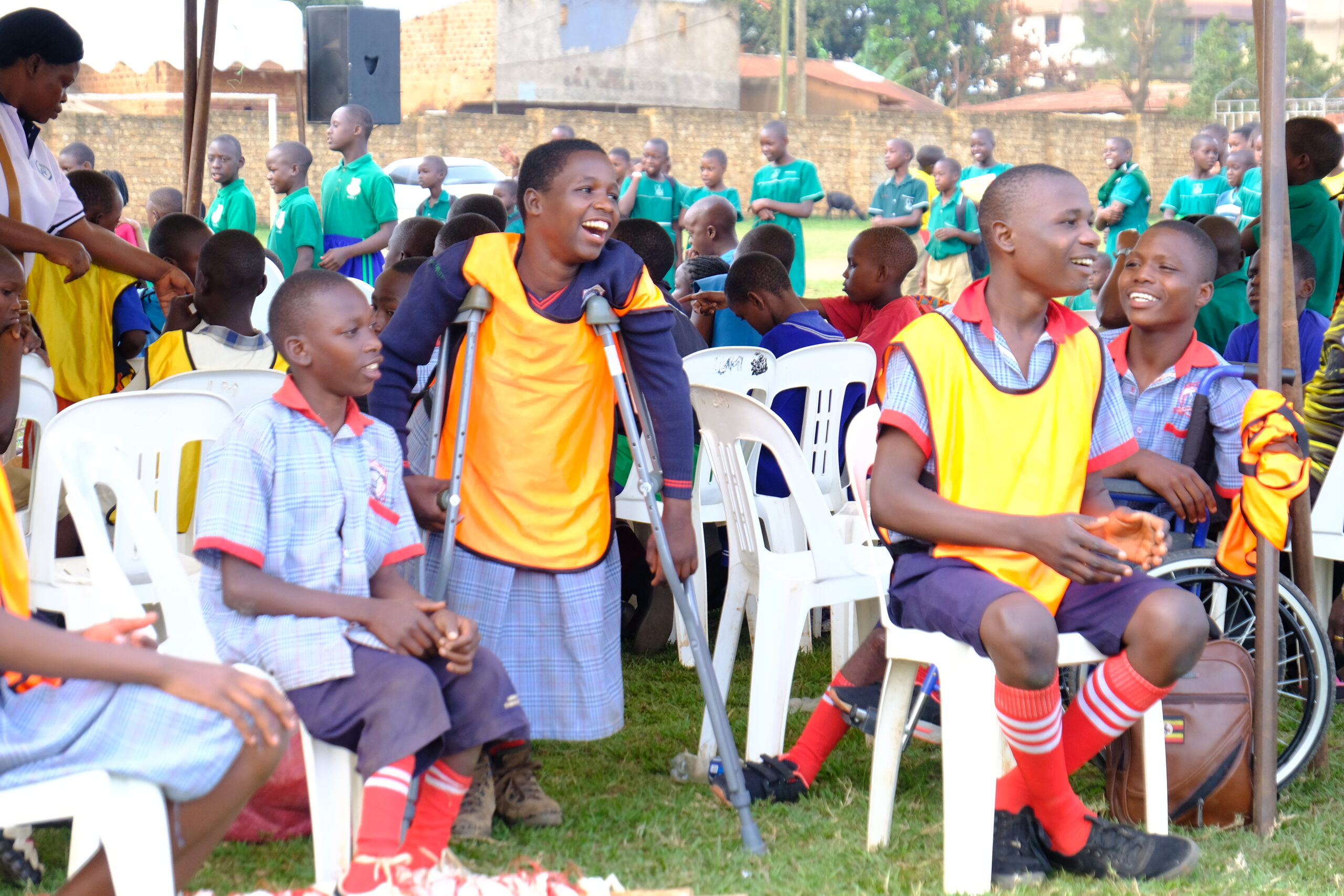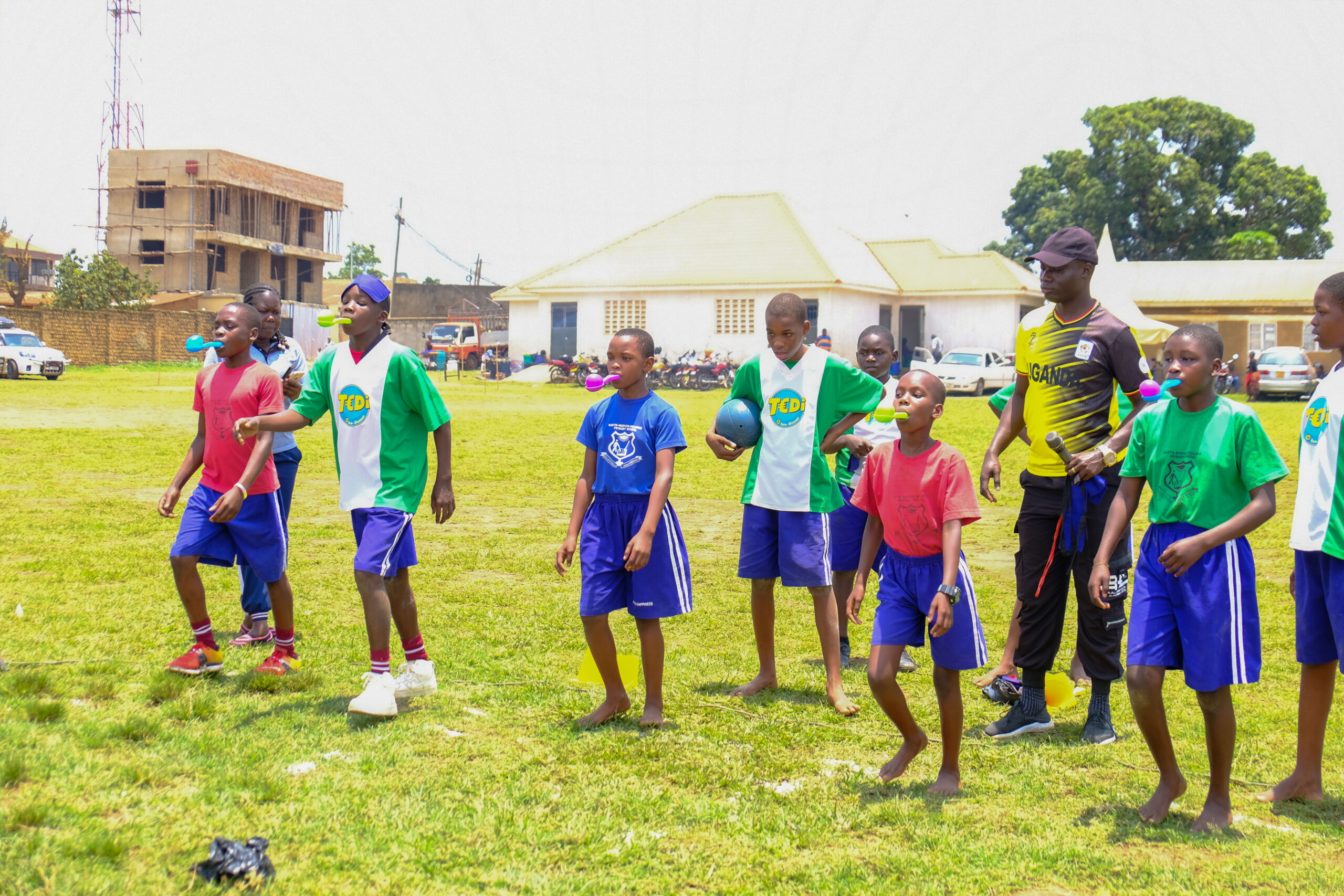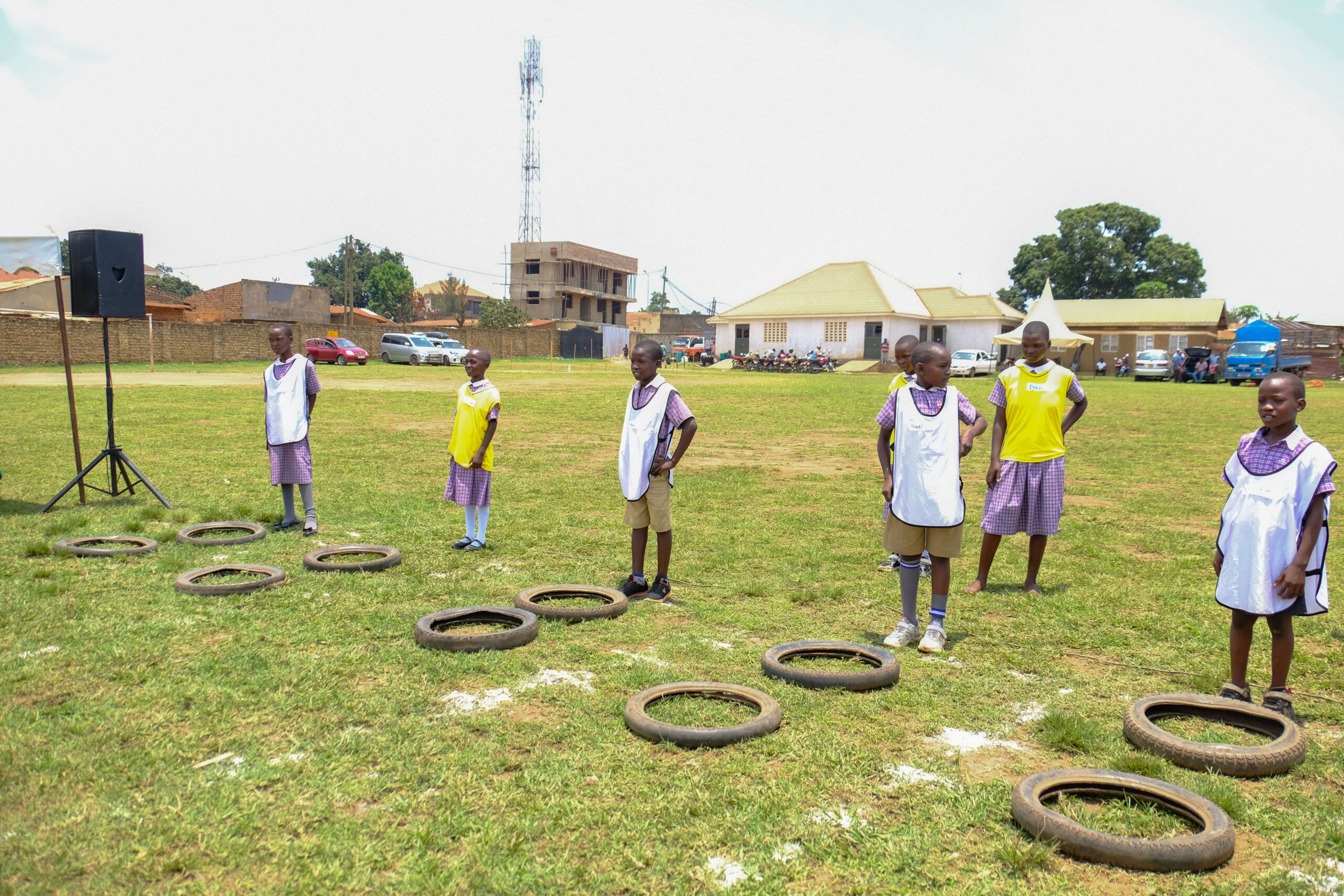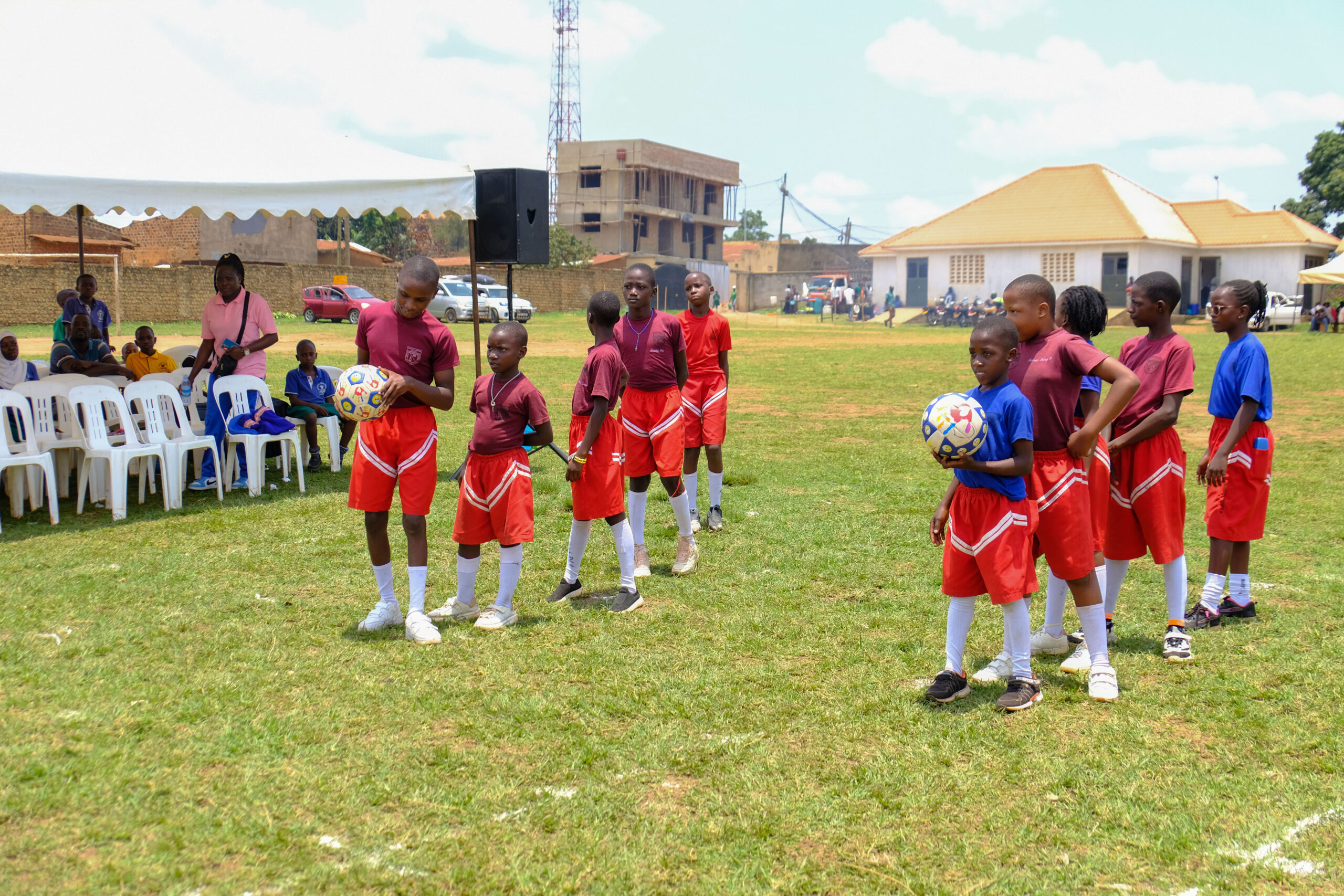Disability Inclusion Project, Uganda
Disabled children in rural Uganda can face many hardships. Where many families believe disability to be a curse, disabled children are stigmatised, neglected and even abused. They severely lack opportunities for participating within their families and communities and are often considered a burden.
With over 1.28 million children living with disabilities (Uganda Census 2024) and only 9% attending primary school (Ugandan Government, 2017), change is desperately needed.
International Needs Uganda was established in 1994 initially to support the great needs of children orphaned by the HIV/ Aids pandemic. As these children lost their parents, International Needs stepped in to support the extended family who began to care for them through child sponsorship.
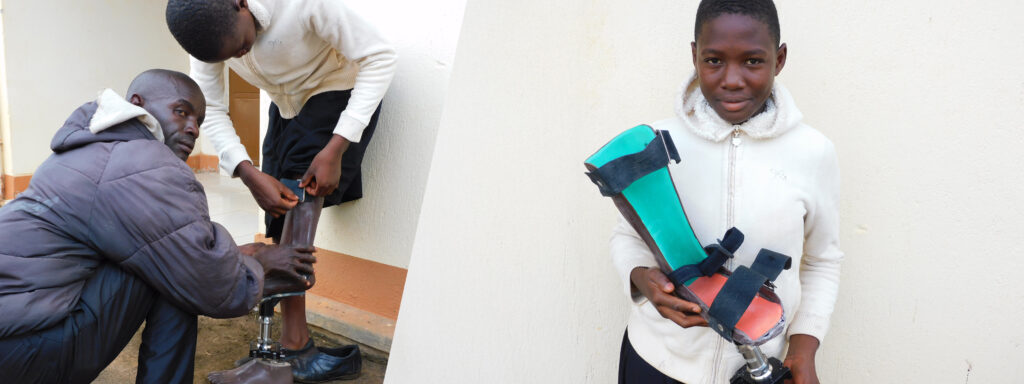
In 2017 we were challenged by The UNESCO Chair on Transforming the Lives of People with Disabilities through Physical Education, Sport, Fitness and Recreation to look into our programmes and see how well we were supporting disabled children. We were saddened to see that very few disabled in the local community were attending schools and participating in community life.
As a result, we launched a project together with UNESCO Chair to begin to address the multiple challenges for disabled kids across four districts.
Our unique model is proving to be very successful to date. We have developed a four-pronged approach; working with disabled children, their parents, teachers and communities. And at the heart of the programme is sport as a tool for change – helping children flourish while showing families and communities their true potential.
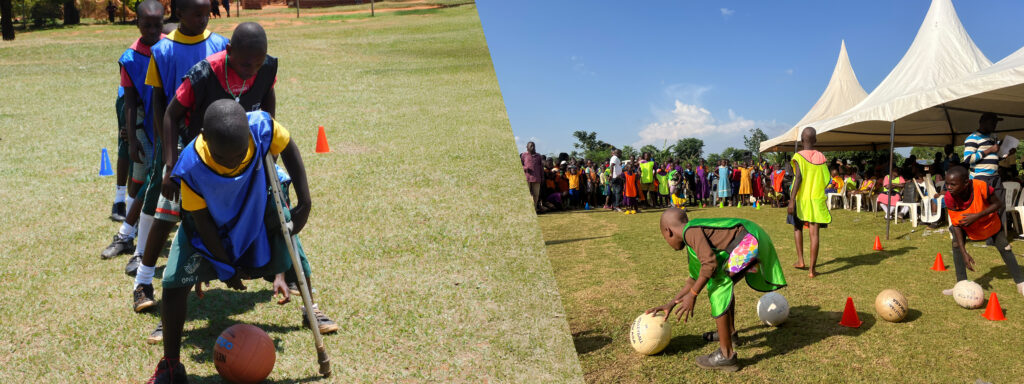
Sport has multiple benefits: it both offers disabled children the physical benefits of movement and exercise, alongside developing their confidence and teamwork through active participation. Children make friends through sport and it can help breakdown social barriers.
Sport is also an effective way to raise awareness of what disabled people can do, thereby challenging negative mindsets. We have seen greater inclusion and active participation of disabled children through this work, in their classrooms, playing sports, at home, at church and in their communities.
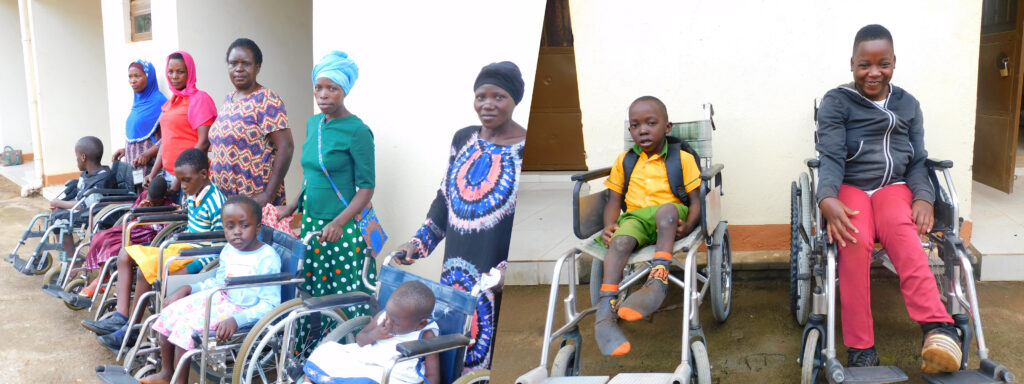
How we are supporting disabled children
Disabled children are benefiting from all aspects of this programme. The most important of all is the changed mindsets or their families, schools, communities and even themselves. With improved understanding of disability and appreciation of the value of their contribution, disabled children can participate fully within their communities and opportunities become available for them. Disabled children are also being supported with:
- Improved accessibility of school compounds: ramps, walkways and accessible latrines
- Mobility aids such as crutches and wheelchairs
- Learning aids such as braille machines
- Health checks, referrals and physiotherapy (new for 2026)
- Equipment for accessible sports games
- Participation in accessible sports at school and inter school competitions
- Enrollment to school and improved teaching methods tailored to their needs
- Friendships with peers
- Voice to represent their interests, needs and themselves.
And so much more!
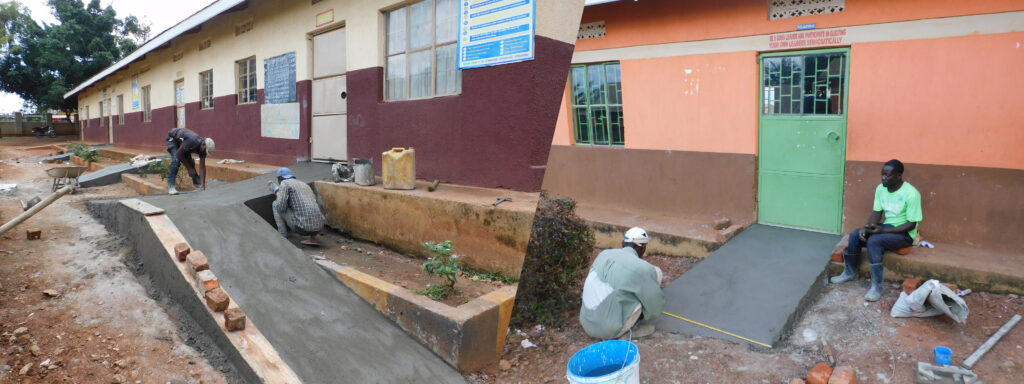
How we are supporting their parents
We are meeting with the families of disabled children across the 80 schools we are now working with to share with them about disability and the need for a changed mindset. We are encouraging the parents of disabled children to enrol them into school and invest in their futures.
We are working with a set of vulnerable families to improve their household income through improved farming and business ideas, this enables more funding available to invest in their disabled child. These families also attend the inclusive sports festivals that we host and see the amazing things their child and other disabled children can do. This reinforces the message of ability rather than disability, that there is plenty disabled people can do. Let us not hold them back!
How we are supporting their teachers and schools
With our partner 80 schools, across four districts, we have been providing thorough training on disability and accessible sports, as well as training on education children with different learning difficulties. Each year 2 teachers from each school attend a week long training to learn more about how best to support these children. They share with us that they find this time inspiring, they learn a lot and feel empowered to better support disabled children in their schools. We are also working with schools to:
- Train headteachers in disability
- Help schools write disability inclusion policies
- Improve accessibility of school compounds
How we are supporting their communities
We are hosting community training on disability, challenging local attitudes on disability and encouraging local leaders to bring changed mindsets to the community. These communities also participate in the inclusive sports festivals and are engaged by the schools in conversations about changing attitudes.
We want to help more and more disabled children to be able to access the empowerment benefits of sports and to encourage families of children with disabilities to be enroll them into school. Please donate generously to this work to help us do more.
Please donate to make a difference
£10 trains a teacher for day on disability inclusion through sports. £46 helps a school make local sports equipment (from local resources) and £76 helps one school participate in a disability inclusive sports festival.
Impact since 2021:
- 2,407 disabled children have improved access and inclusion at school. 355 disabled children have been provided with medical support, 150 disabled children provided with mobility aids and, 1,868 disabled children with learning aids.
- 2,285 parents of disabled children reached with positive messaging about disability, and the families of 240 disabled children supported with improved income generation projects (farming, kiosks, other businesses).
- 192 teachers received ‘Plan2Inclusivise’ training developed in partnership with ‘UNESCO Chair in Inclusive PE Sport Recreation and Fitness’. 207 previously trained teachers provided with refresher training.
- 241 community leaders across the 3 districts, received knowledge on disability inclusion and awareness creation at school and community levels. 60 Church leaders and school chaplains were engaged to offer regular counselling & psychosocial support to disabled children and their care givers.
Uganda
Education
Key facts
- 90% of children with disabilities in ‘developing countries’ do not attend school (Global Partnership for Education).
- 13% of children in Uganda are living with some form of disability, (approximately 2.5 million children) (UNICEF, 2014).
- Only 15% of children with disabilities in Uganda access an education (The State of Access to education by women and girls with disabilities: 2014, Guzu Beatrice, NCD).
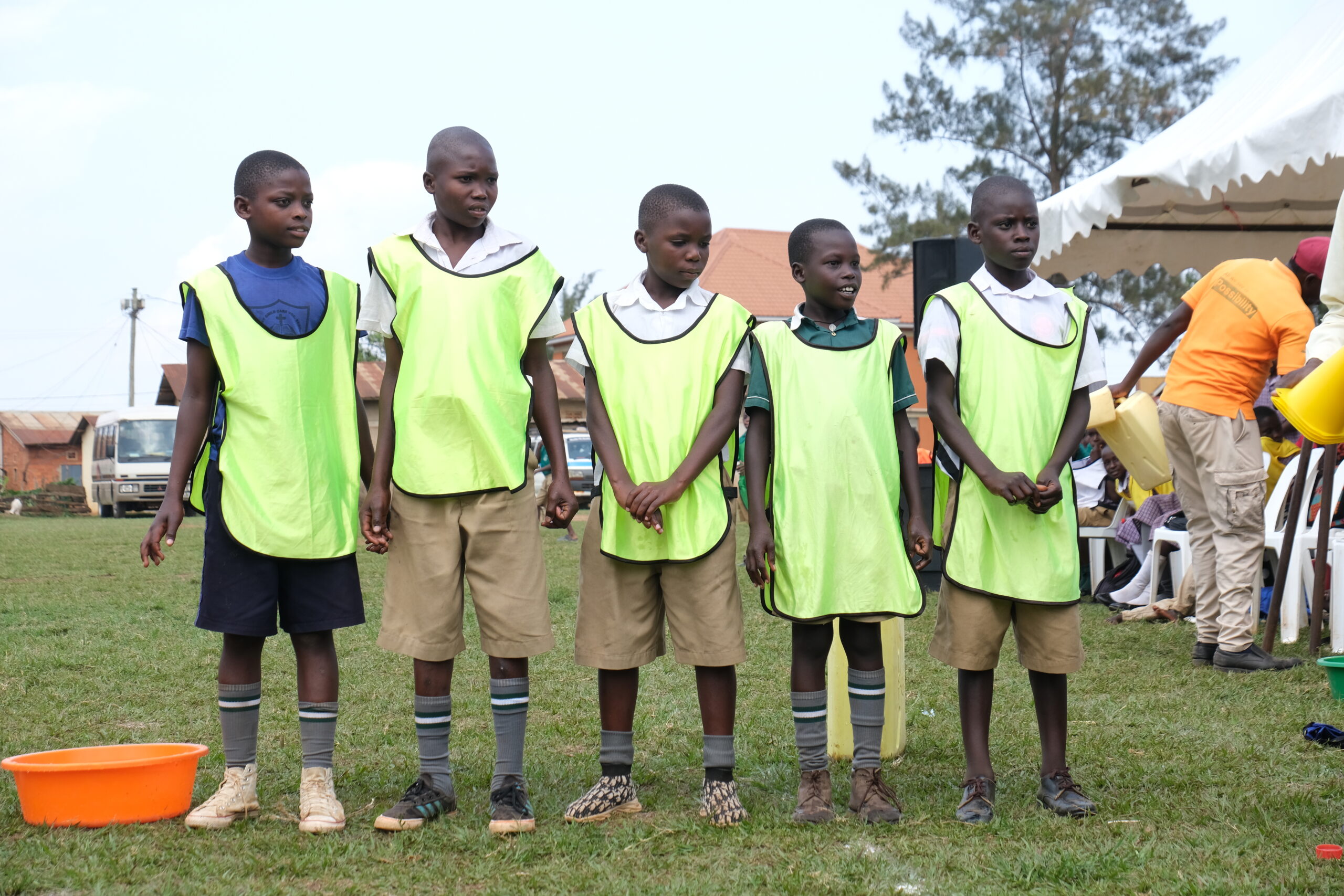
Help support our efforts
Donate today and help our ongoing work to improve the lives of families around the world. By supporting our different areas of development, your generosity will deliver impact and real change.
donateproject updates
March 27th, 2024
Living with a disability in Uganda
One billion people, or 15% of the world’s population, experience some form of disability. Persons with disabilities, on average as a group, are more likely to experience adverse socioeconomic outcomes than persons without disabilities. [1]
This is why we are actively working for the inclusion of people with disabilities, specifically in Uganda.
In countries like Uganda, a child with disabilities can be seen as a ‘curse’, which in turn can bring shame to a family. It is not uncommon for mothers to be told to abandon or even kill their infant child.

The consequences of such beliefs can be dire, and so it is a challenge for our International Needs Uganda team to work with – but through compassion, understanding, education, and providing the appropriate tools and equipment, we can overcome many of these harmful belief systems.
Commonly rooted in superstition, these views can result in situations where children with conditions like cerebral palsy are left lying on the floor. These children ‘can live lonely, miserable and isolated lives, suffering from malnutrition, respiratory problems or pressure sores. In the very worst cases, they die.’ [2]

Through our Disability Inclusion Project in Uganda, we are have been thrilled to see real change happening. For starters, there has been a remarkable 20% increase in primary school enrolment of children with disabilities.
Considering that in Uganda, ‘people with physical or intellectual disabilities are often considered a burden; unable to work, or to learn,’ [3] this has been an amazing achievement, all thanks to the incredible efforts of International Needs Uganda and our supporters. The number of children with disabilities attending 60 primary schools has risen from 1,966 to 2,378 between the end of 2022 and the first school term in 2023 – but we won’t stop here.

As part of the Disability Inclusion Programme we are
- Creating/maintaining Child Protection Committees
- Networking with leaders
- Providing sports equipment and mobility equipment
- Constructing ramps and adapted toilets
- Investing in livelihoods for families
- Supporting teachers with training
- Undertaking awareness raising in the community

Some of the ramps we have had constructed in schools to help make education more accessible
To see the current three year disability inclusion programme through to completion in February 2025, we are looking to raise £20,000 – which is the equivalent of us finding 500 people who were able to donate £40 each.
Being able to continue our programme will help to stop the stigma that ‘is fuelled by beliefs that people with disabilities are cursed.’ In fact, children with disabilities ‘rank among the most socially outcast and vulnerable in Uganda.’ [3]

Meet this resilient young man from Mukono, whose wheelchair was fixed and restored by our team
In Uganda, children with disabilities are more likely to:
– Be denied healthcare.
– Not attend school.
– At higher risk of abuse and sexual violence.
– Be hidden away, warehoused out of sight, or worse. [3]
Together, we can make education more inclusive and accessible for all.
If you are able to donate £40, or even just a few pounds, you could help towards transforming not only an individual’s life, but the way they are treated and perceived in their wider community.

[1] Worldbank.org, 2023
[2] Gov.uk, 2014
[3] The Irish Times, 2020
January 30th, 2023
Eltham College – A Trip to Uganda, by Nabila
Hi everyone,
My name’s Nabila, and this time around 4 years ago now, I was sat in a presentation much like this, about to make an amazing decision just as you all have the option to.
I decided to embark on a once in a lifetime opportunity and before I left for the trip, I was of course apprehensive. I was about to travel to a part of the world I had never been to, and although I had some nerves, I was excited to immerse myself in a different culture and really get involved in the wonderful work that International Needs do. A lot of preparation was involved, and we really were given a good understanding of what our purpose was when we got to Uganda.
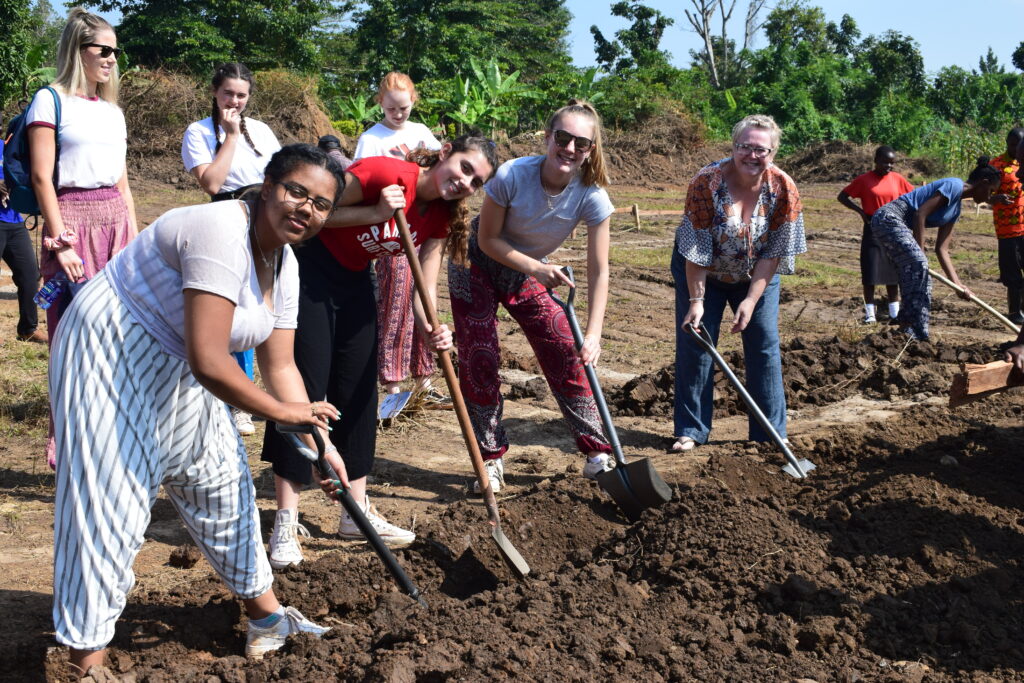
Eltham College students helping to dig the ground for a new girls dorm in Uganda
In July 2018 I travelled to Buikwe, a village in Uganda accompanied by my friends, teachers, and International Needs. Without a doubt it was one of the most incredible, enriching trips I think that I will ever be lucky enough to go on. After a long, but exciting journey to Uganda we arrived at the guesthouse and from the moment we were there, we felt completely welcomed into the community. From day 1 we were learning new things whether it was helping to build water resources in rural villages, attending church services, playing netball with the children at the local school or trying some of Uganda’s famous dishes. We had a lady called Irene cook for us in the guesthouse and honestly her food was quite phenomenal!

Group photo of Eltham College students
You will experience so much on this trip and getting to take part in the work that international needs do is truly inspiring, and you feel like you are actively making a difference to people’s lives. Throughout the trip you meet families and visit different schools and villages in the area, we were fortunate enough to join one of their lessons which was a great experience. One of my most poignant memories was helping to fill up buckets of water for people in the village and their families. It was devastating to hear the risks that these children, particularly girls face on this essential trip, yet they were grinning from ear to ear, giggling as us 16–17-year-olds struggled with the litres that they carry without complaints. But it showed the reality of life for some children in Uganda and really highlighted why trips such as these are important.
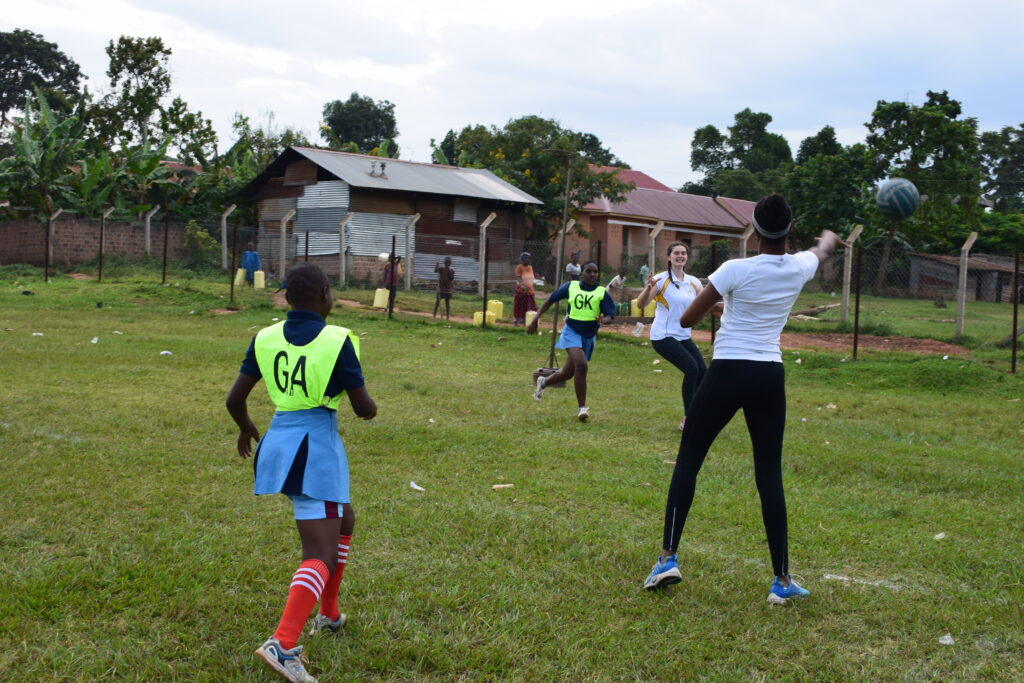
Students playing sports with young people from the local school
Upon my return back home, I took away a lot from this trip. The memories I made will last a lifetime, and I often discuss my time in Uganda with my peers that went with me as well as many others. There was a lot of fun and laughter, equally, there was moments that made me become more reflective on our privileges and what more should be done to help others who are facing the challenges of those faced in Buikwe. I have carried my experiences from Uganda into my adult life; I gained many valuable lessons, some of them include how important gratitude is and I realised how much we often overvalue materialistic items and get caught in things that don’t matter in the long run. In Uganda you will realise the culture is centred around valuing one another, I gained a perspective I would never have gotten had I not joined this trip, and it really opened up my eyes to a different way of life.
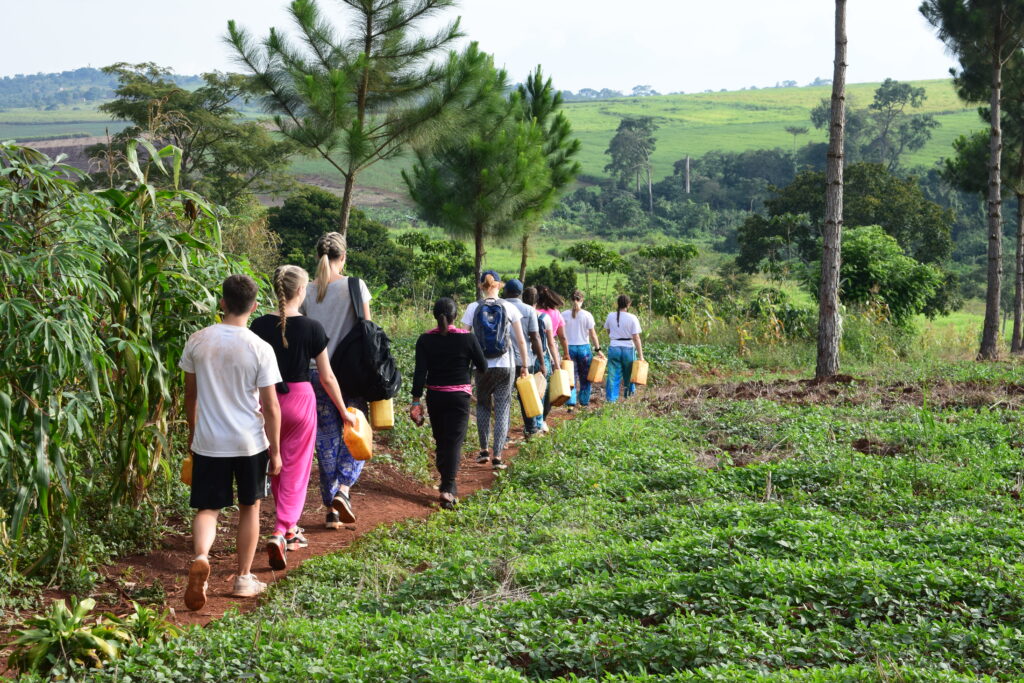
Helping to fill up buckets of water for people in the village and their families
I want to end by saying that the link we have with Eltham College and Uganda is so important and it helps all of this wonderful work to happen that really helps and changes lives. I hope that as a school and within the community at Eltham we can continue to support international needs and I wish the best of luck to the group visiting this year.
Thank you all for listening.
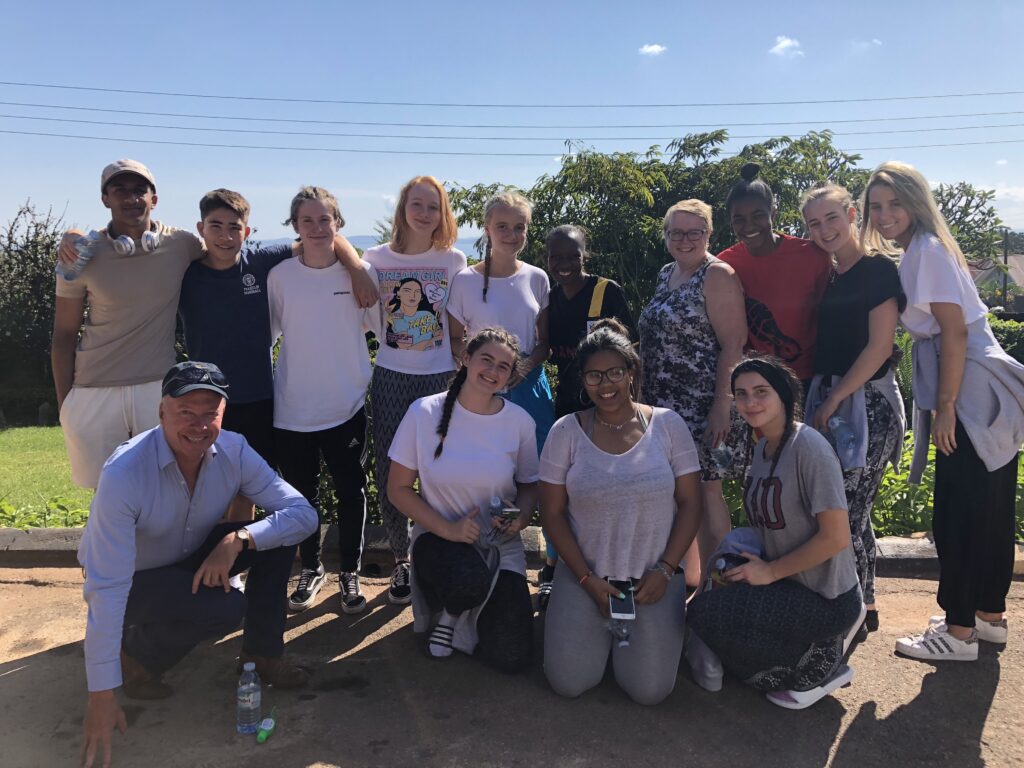
Group photo!
Nabila, former Eltham College student who went on a GoGlobal to Uganda with International Needs
June 27th, 2022
Disability Training for 120 Local Leaders, Uganda
Disability Inclusion Programme – Uganda – A catalyst to encourage children to return to school
Update written by Wendy Lubbee, June 2022
We were excited to finally start the new Disability Inclusion Programme in February this year after multiple delays brought about by the closure of Ugandan schools due to covid. Uganda enforced the longest period of school closures worldwide with them being closed for 22 months during the COVID-19 pandemic. It is estimated that 15 million pupils did not attend school in Uganda for almost two years. Statistical models predict a learning deficit of 2.8 years in Uganda. Although the programme only started in late February, we have been encouraged by what has been achieved so far, the programme has acted as a catalyst to encourage children to go back to school.
The overall vision of this Disability Inclusion Programme is to improve the wellbeing of disabled children through inclusion and integration into their community. This is done by removing barriers to inclusion so that more disabled children can grow in confidence and have a greater opportunity to reach their full potential through participating in education and sports activities and being included in normal family, religious and community activities.
At the beginning of the Ugandan academic year, Head teachers reported that school enrolments were higher than normal after covid. This is encouraging with total enrolments in the 60 partner Primary Schools totalling 34,149 learners (girls 17,598 and boys 16,551). The percentage enrolment of disabled children also increased when compared to 2020. In 2020 the average enrolment of disabled children per school was 22 (904) in 40 schools. The baseline shows that in 2022 on average there is an increase to 31 disabled children (1,878) in 60 partner Schools in 2022. These 1,878 children are made up of 867 girls and 1,011 boys which translates to 5.5% of enrolled disabled children.
This increase in enrolment is seen as a direct result of religious leaders identifying disabled children in their congregations and communities and encouraging their caregivers to enroll their disabled child in school after attending the disability inclusion training in February 2022. With covid restrictions being removed the programme will continue to work with parents, teachers, and the community at large to change mindsets in order to reduce stigma and improve inclusion of disabled children.
We are grateful to the supporters of this programme who partner with us to change the lives of disabled children who otherwise be left behind in not only their education opportunities but in experiencing life to its full.

Photo above: Training of 120 religious leaders both Christian and Muslim in Disability Inclusion.
June 7th, 2022
New Tank for Bright Secondary School, Uganda
The future is looking brighter at the Bright School in Bujaaya Village!
IMPROVED ACCESS TO WATER RESULTS IN A REDUCTION IN LOST TEACHING HOURS
In many schools in Africa, children miss out on school teaching in order to collect water to be used by their school population. They often travel great distances to collect water from often unprotected water sources such as rivers, ponds and lakes leaving them less time to attend school.
Recently we were able to change the lives of 106 children (plus the school staff) by installing a 10,000 litre water harvesting tank at Bright Secondary School in Bujaaya Village. This water is now available to the school population for the purposes of hand washing and cleaning of the school premises. Thank you to everyone supporting our Water Project in Uganda!

May 19th, 2021
Access, Attitudes and Agency
Integrating Disabled Children into Schools in Uganda
In Uganda, disabled children face an uncertain future. The discrimination that disabled children and their families face is rooted in negative beliefs and stigma that disability is a curse and that having a disabled child means the family must have done something wrong. Disabled children become invisible, often hidden away at home and kept out of sight. These attitudes trigger a vicious cycle that limits the opportunities and agency of disabled children and denies them of their basic human rights.
Education is the best investment you can give to any child. Yet in Uganda 91% of disabled children do not go to school. Those who do have to deal with bullying and discrimination and teachers lack knowledge on how to adjust for the different learning or support needs of disabled children. Despite the government’s efforts through domestic legislation, policy and international commitments like the Sustainable Development Goals to integrate disabled children into schools, they remain one of the most vulnerable groups in society who face multiple barriers to education and employment.
One way that International Needs has addressed this issue is by using sport to break down barriers of inclusion. Sport encourages better health, education and social inclusion and is recognised as a way to promote tolerance and respect by empowering women, young people, individuals and communities. In 2017, we collaborated with UNESCO Chair on a pioneering project called Plan2Inclusivize, which used sport to engage disabled children in play and physical education and trained teachers on making sports activities more inclusive. The project which has expanded to 40 schools, focuses on four key beneficiary groups: disabled children, their families, teachers and the local community across 40 schools in Buikwe District and has seen a significant increase in enrolment of disabled children.
The project has helped disabled children become more active and confident in class and play. Ramps, walkways and toilets have been modified to increase mobility and make school premises more accessible. Schools received a variety of sport materials which has encouraged able-bodied children to play with disabled children building friendships between them. School teachers trained in disability inclusion have an understanding of the biblical perspectives of disability and how to write inclusive school policies. Teachers have responded with enthusiasm; they feel confident to adapt their teaching to support the learning needs of disabled children and have developed better skills to handle inclusion. Families of disabled children have been supported to set up small businesses like goat rearing or food stalls which helps them earn extra income to meet the needs of their disabled child and family. We have hosted sports festivals to celebrate disabled children and show parents and the community the importance of investing in their future.
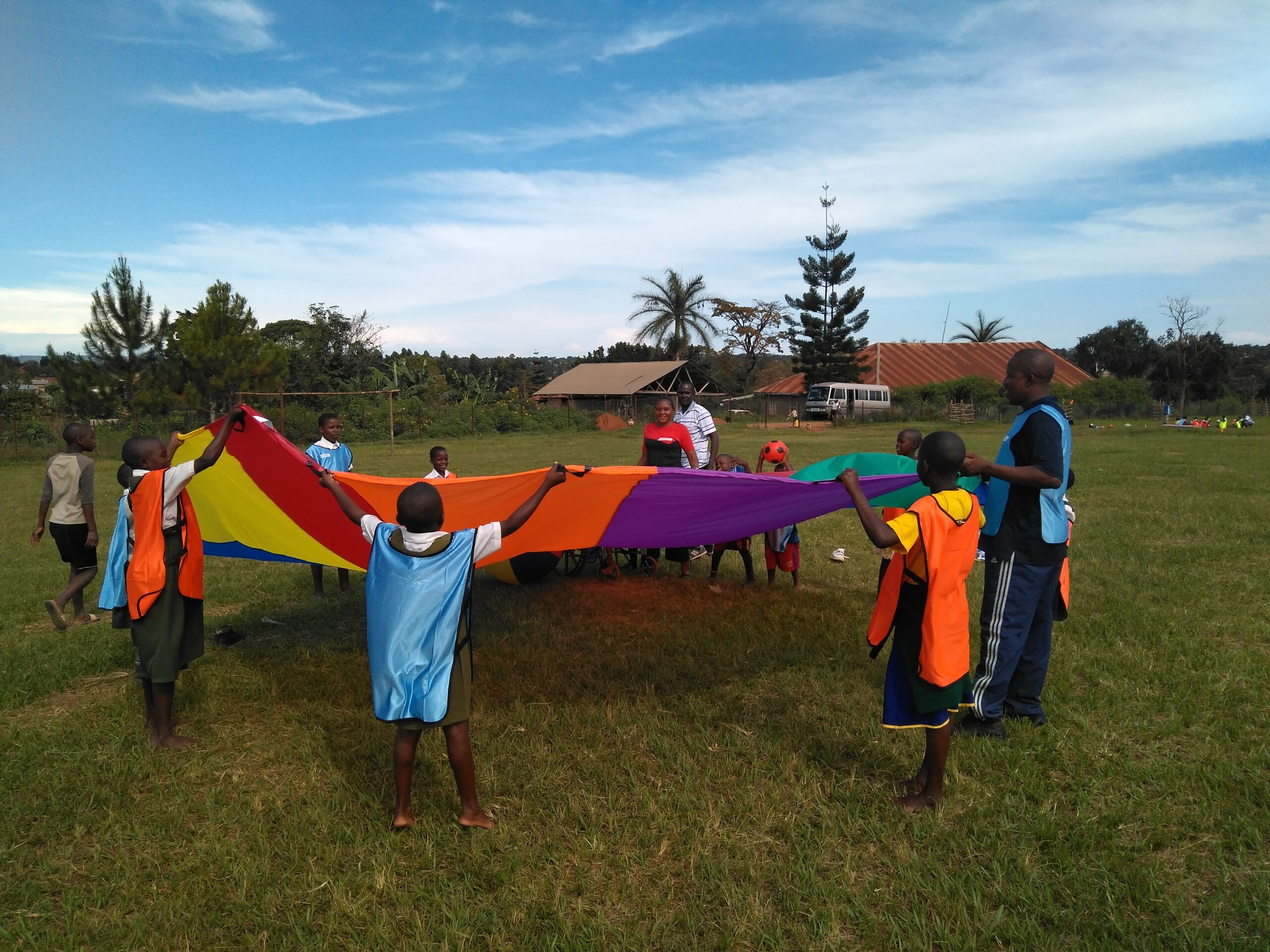
As we look to expand the project to include more schools, one of our supporters, Reverend Tim Goode, the Disability Advisor for Southwark Diocese shared his reflections on his first visit to Uganda and how this project challenges attitudes, access and agency. When families believe that having a disabled child is a curse, they keep them out of sight and hidden away from the community. When we have disabling attitudes, this builds barriers to access, which denies agency and this goes on to reinforce disabling attitudes creating a vicious cycle. By challenging disabling attitudes as this project does, the walls to access collapse and people have agency which again challenges disabling attitudes even more and the vicious cycle turns into a virtuous cycle. The project has highlighted that by engaging with people who are different, we replace fear with love and friendship which is transforming the lives of disabled children for the future prosperity of Uganda.
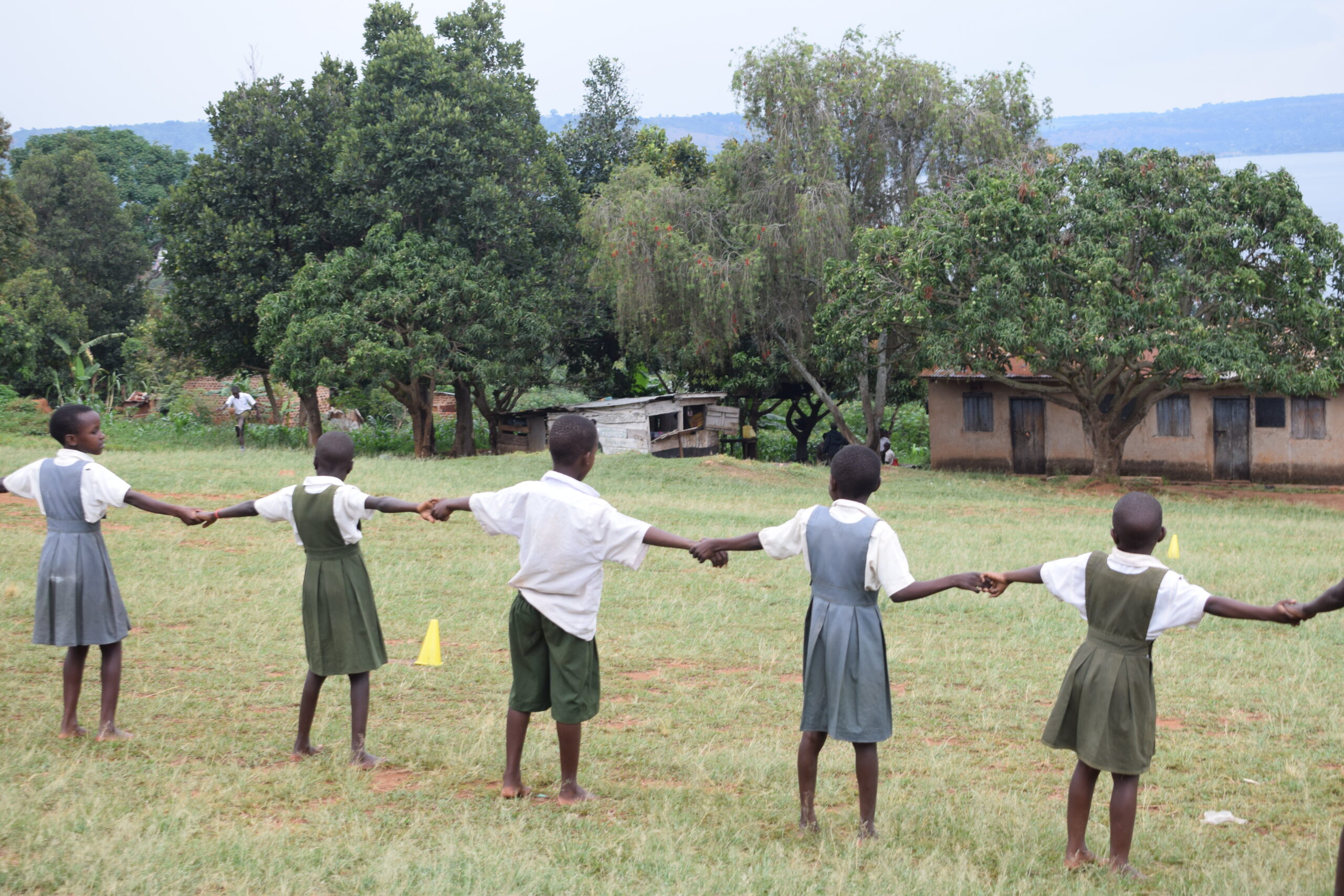
Donate online HERE
If you’d like more information, please get in touch with marisa@ineeds.org.uk
May 19th 2021
